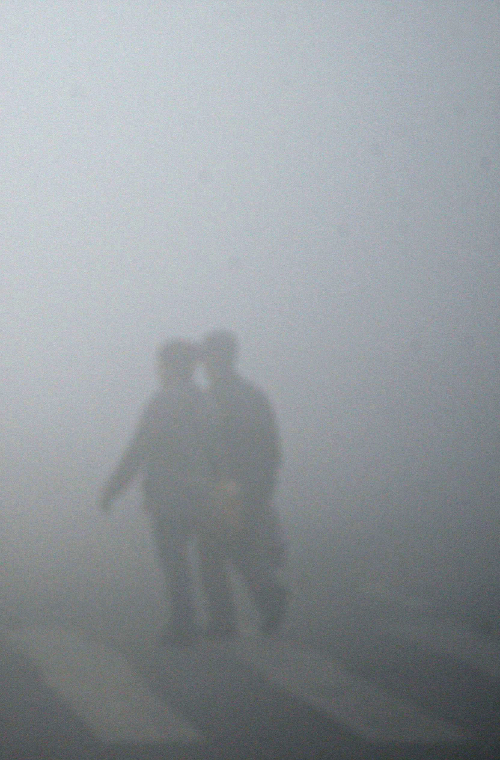City swamped with extreme pollution
 Authorities in New Delhi have declared a public health emergency due to incredible levels of air pollution.
Authorities in New Delhi have declared a public health emergency due to incredible levels of air pollution.
Schools have been closed as the Indian capital’s air quality index (AQI), which measures levels of PM 2.5 — tiny particulate matter in the air, deteriorated to above 900.
PM 2.5 levels are now way over the 500-level that qualifies as “severe-plus”.
Some estimates say New Delhi’s air quality is akin to smoking 33.2 cigarettes per day.
As well as harming the lungs of some 40 million people living in the capital region, the smog is so bad that flights are being diverted due to poor visibility.
Large numbers of people are staying home rather than expose themselves to the noxious atmosphere.
“Pollution has reached unbearable levels across north India,” Arvind Kejriwal, Delhi's chief minister wrote on Twitter.
The official environment monitoring agency SAFAR says no relief is expected in coming days, as humidity exacerbates pollution, already driven higher by seasonal crop stubble burning.
“Wind speed is picking up and it could take 24 to 48 hours before the pollution level reduces to a level of around 500,” Mahesh Palawat, vice president of private weather forecasting agency Skymet, said.
Anything on the AQI about 400 indicates a risk for people with respiratory illness, and can even affect those with healthy lungs.
Doctors report a spike in patients with respiratory related issues, experts say.
The city has declared a public health emergency, shutting down schools and construction sites.
The city government is now restricting the use of private vehicles on New Delhi roads under an “odd-even” scheme based on license plates.
“The temporary restrictions on private vehicles will have a negligible impact as we face the most hazardous situation,” said Skymet's Mr Palawat.
Many are calling on the federal government to do more to combat the pollution.
The Supreme Court will soon hear a petition on Monday from the environment agency, seeking to make state governments take tougher action against farmers to curb the stubble-burning.
Many politicians are reluctant to upset their farming constituencies.







 Print
Print